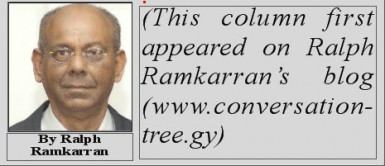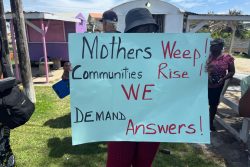It was disclosed during last week (‘Bar Association writes Registrar of Court, Commissioner of Police on touting’ SN, December 2) that the Guyana Bar Association had written to the Registrar of the Supreme Court and the Commissioner of Police seeking action against the use of touts to procure legal business for lawyers. Touting has long been an offence under the Legal Practitioner Act. The police made one attempt to stamp out the practice shortly after the legislation was passed when John Leonard was charged for touting as a result of a police trap.
 In 1971 the Court of Appeal set aside the conviction of Leonard who was represented by the legendary J O F Haynes. Since then the police have done nothing to stamp out the practice, presumably because of the virtual impossibility of obtaining evidence of and a conviction for touting other than by entrapment, which was the method used as the basis of the charge against Leonard, which the Court of Appeal rejected. Touting flourishes also because some members of the legal profession benefit from it.
In 1971 the Court of Appeal set aside the conviction of Leonard who was represented by the legendary J O F Haynes. Since then the police have done nothing to stamp out the practice, presumably because of the virtual impossibility of obtaining evidence of and a conviction for touting other than by entrapment, which was the method used as the basis of the charge against Leonard, which the Court of Appeal rejected. Touting flourishes also because some members of the legal profession benefit from it.
For those who are unfamiliar with the practice of touting and have never had to walk the upper portion of Croal Street and Avenue of the Republic or Charlotte and King Streets and their environs in search of a lawyer, an attempt to do so will result in an approach by one or more persons inquiring if you are looking for a lawyer. Upon an affirmative indication, you are invited to accompany the tout to his lawyer who is claimed to be the best in the city or the most reasonable in his or her fees. If more than one tout is about, a competition or even jostling takes place between the touts for your hand to literally drag you to their respective lawyer. Taxi and minibus touting is an extreme form of touting.
The raising of this issue is timely. A new batch of lawyers is being admitted to practice. Many will enter into private practice and will have to confront this scourge as I had to do immediately as I began private practice in the early 1970s. Young lawyers suffer the most as the older lawyers are better organized with the touting fraternity. Because they are better known, the touts are able to more easily persuade clients to retain them and since their fees are higher, the touts get a higher cut.
But far more dangerous than touting is the development over the past 20 years of the illegal practice of law by unqualified persons. This occurs at the Resaul Maraj Building at Charlotte and King Streets and elsewhere. This illegal practice consists of a number of former law clerks and others who actually engage in conveyancing, that is, the transfer of property from a vendor to a purchaser. They draft contracts, prepare conveyancing documents, get some lawyers to sign them for a small fee and make a fortune.
This practice is based on fraud. One client was heard to be boasting that he paid only $8 million in conveyancing fees for a $100 million transaction by going to a ‘clerk’ rather than a lawyer. In fact, the statutory fees and expenses, which a reputable lawyer would have charged, would have been in the vicinity of a quarter of that amount.
This practice is not confined to former law clerks. Many Justices of the Peace and Commissioners of Oaths prepare affidavits, which are mostly improperly drafted as a result of which the document is rejected and many persons suffer serious loss and other negative consequences. This illegal practice of law can be stamped out if the police were to take some action against this growing menace.
But police action becomes difficult when reputable corporate citizens have led the way. Some years ago the Guyana National Co-operative Bank had a mortgage department, which prepared mortgages for customers who had borrowed money and charged them the statutory legal fees. The Legal Practitioners Act provides that only a practising lawyer can receive legal fees. This practice continued until the bank ceased operations, even though the illegality had been pointed out to them after the change in government in 1992.
The Guyana Bar Association may wish to examine the possibility of establishing a qualifying course of studies for law clerks administered by the Bar Association itself or the University of Guyana. This should be accompanied by a revision of the Legal Practitioners Act to enable law clerks to charge statutorily fixed fees for certain types of routine legal services which can be accessed by the general public. This will go a far way, with the necessary public education, in reducing the illegal practice of law and make legal services more accessible at far less cost.
This is by no means a simple undertaking and there is likely to be resistance by the legal profession. It may be seen as setting up clerks in competition with lawyers and reducing the amount of available legal work for lawyers. But while lawyers are qualifying in increasing numbers, the demand for legal services is also growing by leaps and bounds. Negative outcomes for the legal profession are not a natural consequence of this and other reforms.









